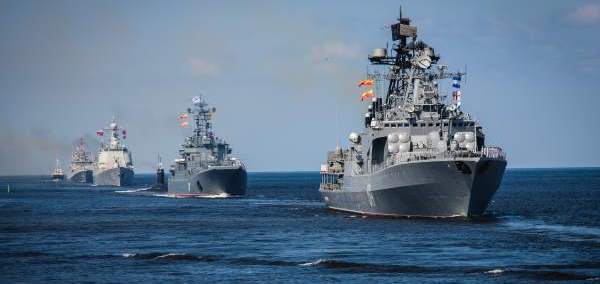Another important point in the statements of the IDF Press Service, which, in my opinion, has not received the media attention it deserves. “The US has sent AEGIS ships to Israel’s shores. This is not for Gaza.”
What is this even about?
AEGIS (“Aegis”) ships are American ships equipped with the Aegis system, a multifunctional combat information and control system, which is an integrated network of shipboard situational awareness and targeting capabilities. In simple terms, these ships are equipped with a battle management system that includes a multitude of sensors and warfare tools — Tomahawk missiles, anti-aircraft missiles, cannons, etc. In addition, some of them are equipped with missile defense systems capable of intercepting ballistic missiles.
From the IDF spokesman’s statement, one can clearly conclude that there was an agreement between the US and Israel that the US would send ships capable of intercepting missiles near Israel.
The IDF spokesman, as stated above, reported that “this is not for Gaza.” In other words, the U. S. ships are not designed to intercept Grad rockets or other rockets that Hamas will launch. This is understandable, because the purpose of these ships is completely different.
Those ships that have missile defense systems carry several types of missiles on board — SM2, SM3, and so on. These missiles are designed to intercept medium-range ballistic missiles (e. g., Scud) or long-range missiles, such as Iranian missiles like Shihab, Sajil, etc. Different models of U. S. anti-missiles have different capabilities: some are designed to intercept at very high altitudes — outside the atmosphere, others — to intercept those missiles that have already entered the atmosphere.
To summarize:
The U. S. is deploying naval defense systems near Israel that can help our defense if the conflict grows — against Syria (which has Scud missiles, Hizbullah also has them in small numbers) or Iran, or if missiles are launched from Yemen or Iraq.
Today, Israel has its own, independent and very high quality defense capabilities — “Hetz-3” missiles (which also have the ability to intercept missiles outside the atmosphere) and “Hetz-2” missiles, as well as the “David’s Sling” system.
At the same time, the presence of U. S. systems provides a significant reinforcement of our defense system, a kind of reserve in case our own capabilities fail or are damaged, and in addition, of course, it is also a very important deterrent signal, demonstrating to various warmongers the willingness of the U. S. to intervene directly in the war, on the side of Israel.
In fact, since the Gulf War, the U. S. has conducted exercises every year or two to deploy U. S. Patriot batteries in Israel. The deployment of THAAD long-range interceptor missile defense systems has also been practiced in recent years.
Through these annual exercises, we have a strong capability to respond quickly and effectively in the event of an expanding conflict. All of these batteries can be quickly transported to Israel and deployed in pre-prepared locations, along with all of their infrastructure.
In addition, Israel (on Mount Keren in the Negev) has an American radar with very serious capabilities, capable of recognizing missiles thousands of kilometers away.
Thus, we can conclude that now the U. S. supports Israel not only declaratively, but also in practice. They are sending warships, aircraft carriers and, as mentioned above, ships to our shores to intercept missiles. According to reports in recent hours, American Hercules planes have already begun landing in Israel and unloading large quantities of weapons. This was in response to Israel’s request for more bombs for its air force and other assets.
That said, our political leadership needs to make sure that all these shipments of American weapons do not tie our hands — as they did during the Yom Kippur War.
It is also important to emphasize that sending American ships to Israel does not mean that there is an unequivocal assessment that war with Iran or Hizbullah is inevitable. This is just preparation for any development, whatever happens. The Lebanese Foreign Minister said today that Hizbullah has promised not to start a war against Israel unless Israel attacks Lebanon. That said, of course, we cannot trust his words or disregard Hizbullah’s willingness to engage in provocations.
